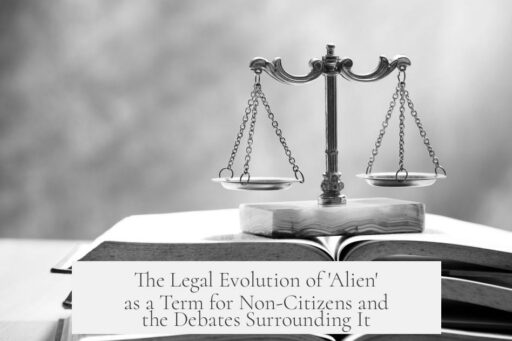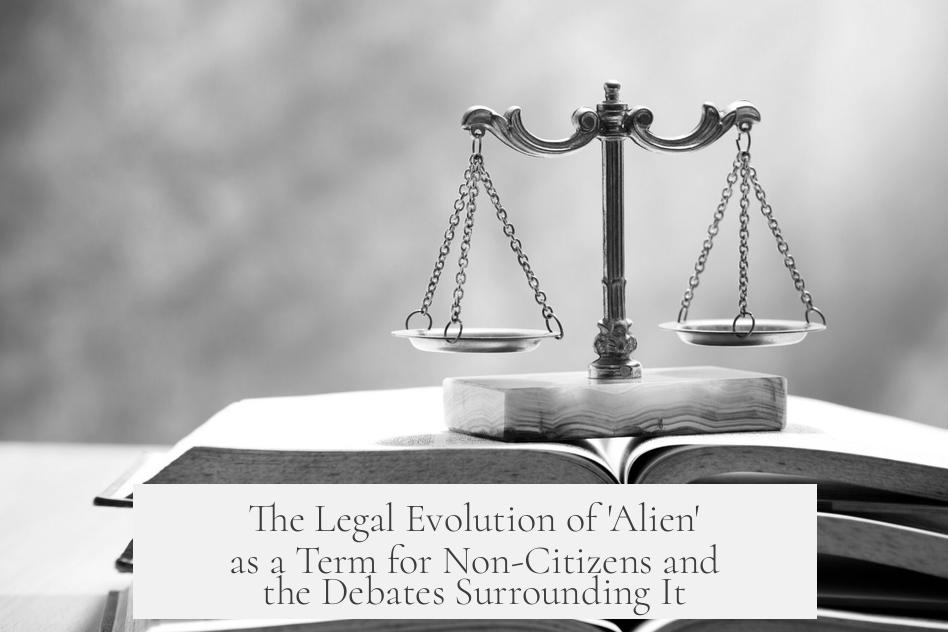The term “alien” became a legal designation for individuals in a country who are not citizens through historical and linguistic evolution stemming from Latin origins. It entered legal and governmental use in English-speaking countries to denote foreigners or non-citizens, reflecting the original sense of “belonging to another.”
The word “alien” originates from the Latin word alienus, meaning “belonging to another,” which itself derives from alius, meaning “other.” This usage can be traced back to Middle English around the 1300s, where “alien” broadly described someone from a different country or culture. The legal context adopted this established meaning specifically to classify people who reside within a nation but lack citizenship.
In the United States, for example, “alien” appears in statutes such as the Immigration and Nationality Act to designate non-citizens. This usage emerged during the 18th and 19th centuries as national governments sought precise legal terms to describe individuals who were not natural members of their polity but were present within its borders.
Unlike the term “illegal alien,” which carries a heavier political and social stigma, the simple legal term “alien” historically did not invoke the same level of controversy. However, over time, concerns arose regarding the term’s implications:
- Some argue “alien” implies a complete otherness, potentially dehumanizing individuals by emphasizing their foreignness.
- Critics note it can foster negative stereotypes and social exclusion, even if not originally intended as pejorative.
- Debates have surfaced about replacing “alien” with terms like “non-citizen” or “foreign national” to reduce perceived hostility.
Despite its etymological neutrality, the word “alien” thus sometimes encounters scrutiny in modern discourse. The negative connotations linked to adjectives such as “illegal” — especially when used to describe immigrants — have sparked greater sensitivity toward language in both law and everyday speech.
| Aspect | Description |
|---|---|
| Origin | Latin alienus, meaning “belonging to another” |
| Historical Use | Identified foreigners or non-citizens legally since ~1300s in English |
| Legal Adoption | Used in immigration laws to designate non-citizens |
| Debate | Concerns about dehumanizing implications and alternatives proposed |
Key takeaways:
- “Alien” is a longstanding legal term derived from Latin meaning someone belonging to another country.
- The term became standard in immigration law to identify non-citizens residing in a country.
- While originally neutral, “alien” can carry negative connotations, leading to debate and calls for alternative terms.
- Discussions about respectful language in immigration contexts continue to evolve.
When and How Did ‘Alien’ Become a Legal Term for Non-Citizens? Was There Debate?
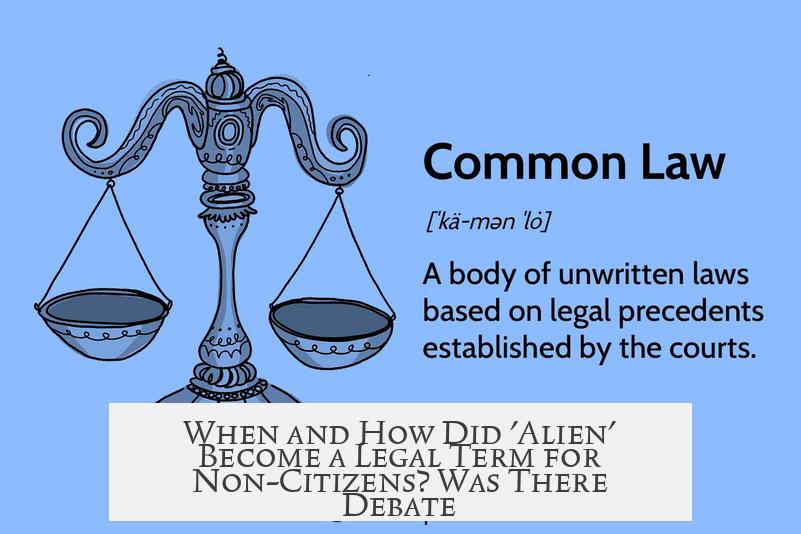
The term alien has legally described people in a country who are not citizens since the early development of nationality laws, rooted in historical language and concepts, but it has sparked debates over its implications and connotations.
Now, before you imagine little green men arriving on Earth and immediately getting legal status, the word alien has a much older history on this planet. It’s not a sci-fi invention but a linguistic legacy.
Let’s take a little stroll through history to understand how alien made the leap from a general descriptor to a formal legal term.
Alien’s Ancient Origins: More “Other” Than “Outer Space”
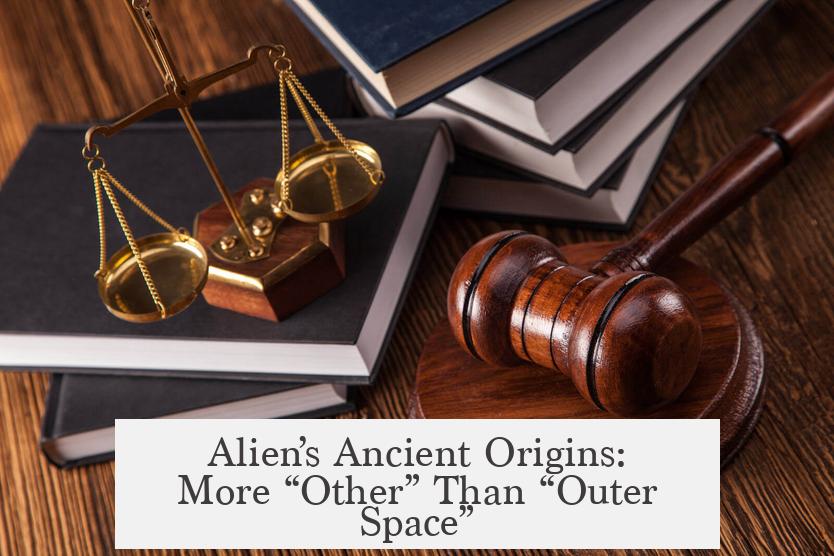
The word alien originates from the Latin alienus, meaning ‘belonging to another.’ It’s related to alius, which simply translates to ‘other.’ That’s pretty straightforward and directly communicates the idea of ‘someone or something foreign.’
This Latin root passed into Old French and then Middle English around the 1300s, always used to signify someone or something belonging somewhere else. For centuries, then, individuals perceived as foreigners, outsiders, or strangers were colloquially called aliens.
Fun fact: The word only began referring to extraterrestrials—the sci-fi variety—around the early to mid-20th century. So legal documents didn’t borrow the term from space invader vocabulary but from the well-established meaning of “foreignness.”
Legal Adoption: When Did ‘Alien’ Become Official?
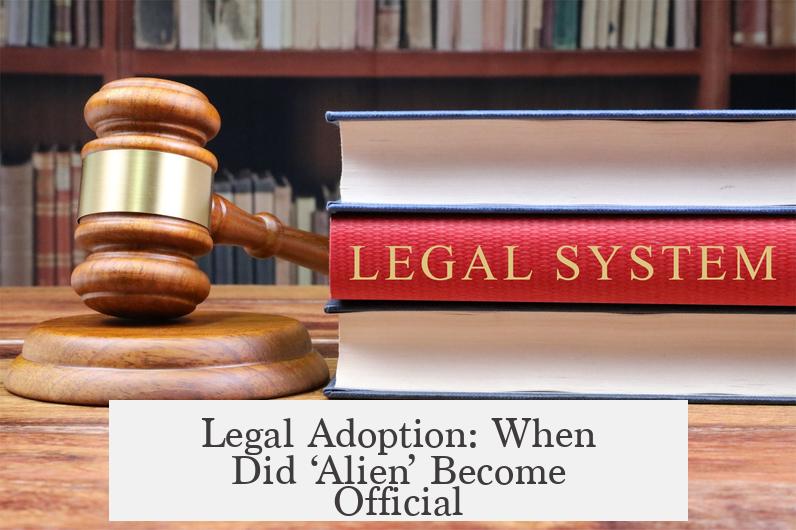
The use of alien as a legal term took root in English-speaking countries with the rise of formal nationality and immigration systems. Courts and governments needed a concept to categorize individuals residing in a country who were not citizens. Thus, “alien” was adopted.
In countries like the United States, the term appears in legal statutes as early as the 18th and 19th centuries. For example, the Alien and Sedition Acts of 1798 used the term to designate foreigners living in the country. It clarified rights, restrictions, and the government’s power to expel or deport non-citizens.
This use was partly practical: legal systems require clear and concise classifications. Calling someone an “alien” officially identifies their status as non-citizen and helps determine the legal framework applicable to their residency and activities.
Spotlight on Debate: Was ‘Alien’ Ever Controversial?

Here’s where it gets interesting: while the term alien seems like neat legal bookkeeping, it’s not without controversy.
People have questioned how labeling humans as “aliens” might carry negative undertones or unintentionally dehumanize individuals. After all, “alien” literally means something foreign, strange, or even unwelcomed. That can subtly influence social attitudes.
Take, for example, the pushback against terms like “illegals” to describe undocumented immigrants. Such labels imply moral or legal deficiency as inherent to a person. While “alien” is a bit more neutral legally, concerns linger.
Some argue that the term perpetuates an us-versus-them mentality. Does calling someone an alien make him/her feel less human or less a part of the community? Do these legal tags protect or hinder integration and fair treatment?
Debates over words might seem like semantics, but words shape perceptions, which shape policy and society. This sensitivity has prompted legal reforms in naming, especially in places working toward inclusive language.
Practical Points and Considerations Today
So, why does “alien” persist in legal texts?
- It is clear and historically entrenched in statute.
- It distinguishes clearly between citizens and non-citizens, which is crucial for rights and responsibilities.
- Legal terms need consistency, and a term established centuries ago is hard to replace quickly.
But modern migration law and policy also encourage using less charged language. For example, “non-citizen,” “foreign national,” or “migrant” are commonly recommended as more neutral or humanizing alternatives.
What Can We Learn From This?
Understanding the origin of “alien” helps us appreciate the power of language in law and society. Knowing it means simply “other” can ease some of the emotional sting—but it also challenges us to think critically about how words impact people’s lives.
Should legal language evolve to reflect contemporary values? Absolutely. Should it be precise? Without question.
For now, the term “alien” stands firmly in the legal lexicon, a historical holdover that tells a deeper story about identity, belonging, and how societies categorize outsiders.
A Quick Takeaway
| Topic | Detail |
|---|---|
| Origin | From Latin alienus, meaning ‘belonging to another.’ |
| Legal Use | Used formally since at least the 18th century to describe non-citizens. |
| Controversy | Concerns about dehumanizing implications and modern calls for inclusive language. |
| Alternatives | Terms like “non-citizen,” “foreign national,” and “migrant.” |
So next time you hear “alien” in a legal context, remember: it’s not just about sci-fi beings. It’s a centuries-old label rooted in law, language, and a society’s need to define “the other.” And like all powerful words, it carries weight worth reflecting on.
